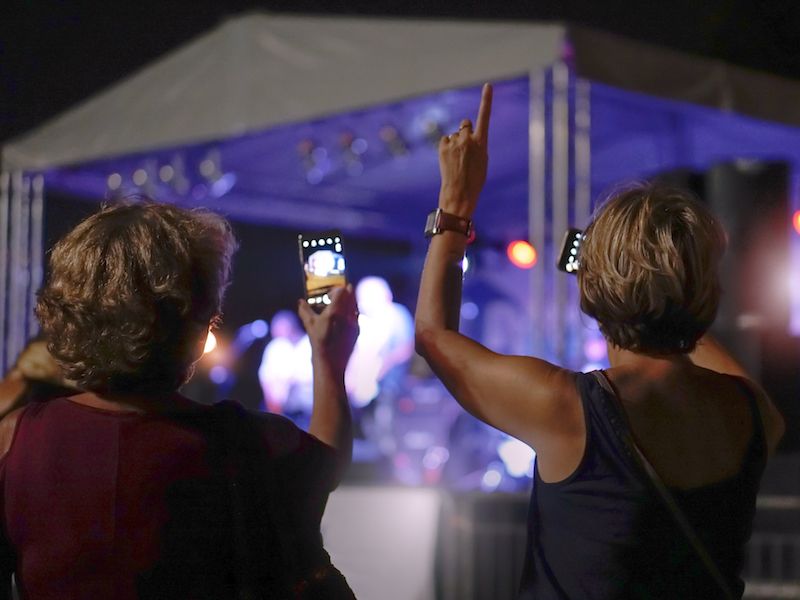
Summer is finally here, and you’re ready for all those things we’ve been looking forward to: swimming in the pool, visiting the beach, and other activities that might damage your ears. That’s correct, summer has a few unseen dangers to your ears, either from loud sounds or the external situations you may find yourself in. Any sounds over 80 decibels can lead to injury to your ears, while swimming in pools or other bodies of water can cause lasting hearing loss. You need to take precautions and be mindful of your environment in order to safeguard your hearing this summer season. Here are 6 of the summer’s hidden hearing dangers.
At Concerts, Use Ear Protection
Summer is concert time, but even if you go to an outdoor arena, you still should attend to your ears. 90 decibels is in the danger zone for ear damage and concerts reach this volume even at outdoor venues. So whether you’re attending an inside or outside shows, it’s a practical plan to use earplugs. You can still hear the tunes with earplugs it’s just dampened a little. If you’re going to a concert with young children, consider buying them a heavy duty pair of earmuffs since their hearing is much more delicate than those of adults.
Fireworks Are More Than Just Loud
Honestly, there are a lot of reasons to avoid fireworks in the summer. It’s not exclusively the 4th of July shows which are pro that can injure your ears, we mean the backyard fireworks which every summer season cause many of accidents. Backyard fireworks reach decibel levels of nearly 155 which can damage your ears on top of causing hand problems, loss of vision and home fires. This 4th of July, leave the fireworks to the professionals and enjoy the display from a protected and sound distance.
Mowers Can Cause Loss of Hearing
If you love to take care of your yard, your edger, trimmer, and mower are your best friends. But the muffled feeling in your ears is an indication that your hearing has been damaged. That’s because the lawn tools, which are constantly loud, have a slow and steady impact on your hearing. If you’ve ever noticed landscapers, you probably have noticed them utilizing ear protection, you should take a hint from them and use earmuffs or earplugs next time you attend to your yard to make sure your hearing stay healthy.
Pools And Beaches, What You Need to do to Protect Your Hearing
Millions of people suffer from swimmer’s ear each summer, which occurs when the ear canal traps water which has to much bacteria. The bacteria then infects the ear, causing painful earaches and swelling. These bacteria are commonly found in rivers and lakes but sometimes also be found in pools and hot tubs if the water is not correctly treated. As long as you have your ears treated by a hearing specialist you should be ok, and no irreversible loss of hearing will happen. To be safe, when your swimming in your pool, wear special swimmers earplugs and keep the chemical balance precise to minimize the likelihood of getting swimmers ear.
Water Sports And Boats
If you love the water, summertime is beach and boating time for you. But, jet ski and boat engines can be noisy,we’re talking over 100 decibels. Sustained exposure to that kind of noise for a period of around 15 minutes can result in permanent hearing impairment. Once again, it’s probably a smart decision to use a set of disposable, foam earplugs while you’re out on the water to make sure you don’t inadvertently damage your hearing.
Car Races Can Injure Your Ears
It doesn’t matter what type of auto racing you enjoy, stock cars, midgets, motorcycles, drag racing, Formula 1. If you attend a lot of auto-races this year, they all present a peril. 120 dB is well within the danger zone for hearing loss and lots of races go well above this. Earplugs are your best bet at these races, while your kids should definitely wear the earmuffs which were mentioned earlier. Otherwise, you may not get to enjoy the sound of those engines as you get older.
